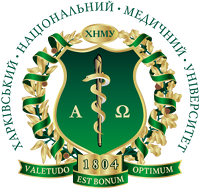Please use this identifier to cite or link to this item:
http://repo.knmu.edu.ua/handle/123456789/31194| Title: | Markers of chronic inflammation and atherosclerosis in women at menopaus |
| Authors: | Alieksieieva, Victoriia Muryzina, Irina Shcherbina, Mykola Gargin, Vitaliy |
| Keywords: | menopausal transition atherosclerosis endometriosis |
| Issue Date: | Aug-2022 |
| Citation: | Markers of chronic inflammation and atherosclerosis in women at menopaus / V. Alieksieieva, I. Muryzina, M. Shcherbina, V. Gargin // Atherosclerosis. – 2022. – Vol. 355. – P. 271. |
| Abstract: | Background and Aims : Recognition of high-risk population that should be screened in the first turn provides the opportunity to intervene at the reversible stage. Endometriosis is notoriously associated with chronic inflammation, which might outweigh protective influence on endothelium of almost unopposed estrogens. Objectives. The objectives were to test patients with confirmed endometriosis for biomarkers of inflammation and early marker of atherosclerosis during menopausal transition (MT), then to identify variables with the best predictive value with regard to subclinical atherosclerosis. Methods: The study included 67 patients aged 45-55, with endometriosis and without a history of evident cardiovascular disease who had already experienced perimenopause-associated menstrual disorders with episode of amenorrhea 2-11 month, and 32 women matching by age and history except no records about endometriosis. They were tested for C-reactive protein (CRP), interleukine-6 (IL6), tumor necrosis factor-α (TNFα), apolipoprotein B (ApoB), fibrinogen, brachial artery dilation and cross-sectional associations were examined. Results: It turned out that women with endometriosis showed elevated level of IL6 (1.89±0.09 pg/ml, >1.7pg/ml), CPR (5.7±0.93 mg/L, >3mg/L), slightly raised ApoB(78±2.2 mg/dL, >60 mg/dL) and TNFα (79±1.3), lower vasodilation response (7.95±0.23, <8%). Women without endometriosis showed all these variables within physiological range. Conclusions: Chronic subclinical inflammation related to endometriosis might affect adversely endothelium and cause ED, which predisposes to alterations associated with atherosclerotic impairment of vascular network at the time of MT. |
| URI: | http://repo.knmu.edu.ua/handle/123456789/31194 |
| Appears in Collections: | Наукові праці. Кафедра оториноларингології |
Files in This Item:
| File | Description | Size | Format | |
|---|---|---|---|---|
| Atherosclerosis Alekseeva.pdf | 287,8 kB | Adobe PDF | View/Open |
Items in DSpace are protected by copyright, with all rights reserved, unless otherwise indicated.

